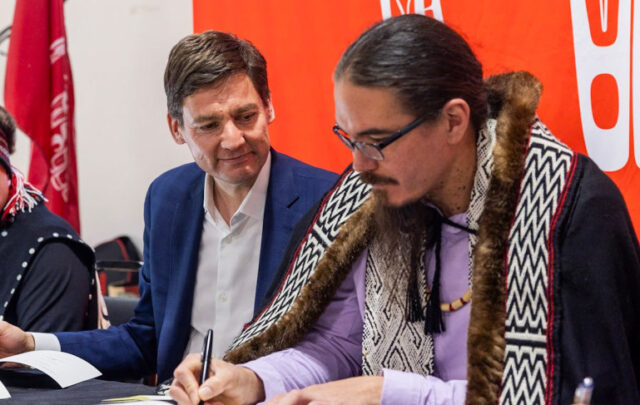
The Migrant Crisis: Arms That Welcome, Arms That Kill
Amy Goodman and Denis Moynihan, Truthdig
The flood of people fleeing war and misery is swelling daily, reaching the shores and borders of Europe in a desperate bid for safety. They come from Syria, where a brutal civil war during the past half-decade has killed well over 200,000, and caused the displacement of 12 million people, both inside and outside the country’s borders—half of Syria’s population…
Jean-Claude Juncker, president of the European Commission, speaking of the migrant crisis, said this week at the State of the European Union speech in Strasbourg, France: “I’m not talking about 40,000. I’m not talking about 120,000. It’s 160,000. That’s the number Europeans have to take in charge and have to take in their arms.” Junker, of course, meant by “arms” a protective embrace. But another European with firsthand knowledge of the plight of the refugees takes the word in its other sense:
“It is our arms which are also killing and destroying these countries,” Annette Groth told us on the “Democracy Now!” news hour. She is a member of the German Parliament and spokeswoman for human rights for Germany’s Left Party. She just returned from a trip to Hungary, where she witnessed thousands of migrants stranded at the Budapest train station. “Germany is the third-biggest weapons exporter, and we have very good relations with, for instance, Saudi Arabia and Qatar, despite massive protest,” she said. “Our government is still delivering arms to Saudi Arabia, [which] is also supporting ISIS, the jihadists”
Money Matters
Editorial, Nature Journal
It is not how much people have, it is how much we know they have that stokes inequality.
It would be so convenient if fundamental laws of nature told us how best to run a society. Governance would be a simple optimization problem, like finding the shortest route through a network; we could do without left–right political confrontation, and just solve the equations. Unfortunately, governance is not a well-posed problem. There must inevitably be balance and compromise: for example, of the rights of the individual against the overall good for society. This is what makes politics and economics not just controversial, but interesting.
Inequality is one of the biggest items on the agendas of both of these disciplines. Few people are likely to speak in favour of inequality as such, but in stereotypical terms the political right defends wealth as a reward for hard work, whereas the left deplores a society in which, as economist Joseph Stiglitz has said of the United States, “1 percent of the people take nearly a quarter of the nation’s income”. It seems an unavoidable truth that a free-market capitalist system will create wealth inequality; to a free-market fundamentalist who sees markets as meritocratic optimizers of efficiency and resource utilization, that is not only necessary but moral. Under that philosophy, by intervening in the market in the hope of making the outcome ‘fairer’, we only throw a spanner in the works.
Yet even if one accepts some inequality as a necessary evil, there are options beyond laissez-faire. How, and how strenuously, governments and legislators should attempt to limit the extent of wealth inequality — crudely measured by the Gini coefficient, which quantifies the statistical dispersion of income distribution — is currently a hotly disputed matter. Should companies and banks be restricted in what they can pay their chief executives? Should taxes aim to inhibit or reduce the perpetuation of inherited wealth? Or is all this crypto-communist social engineering?
The strongest argument for such measures is not that it makes things more ‘fair’ (although meritocratic defences of free-market inequalities should surely at least demand a level playing field). Rather, it is that gross wealth inequality is socially corrosive. It polarizes attitudes, foments unrest (see, for example, the Occupy movement) and degrades trust and cooperation. At face value, a study published online this week in Nature supports that view — but with an added twist…
Climate economists are coming around to the idea that a carbon tax isn’t enough
David Roberts, Vox
The journal Nature has published a new commentary from a set of six (mostly) economists, called "Push renewables to spur carbon pricing." It is notable not so much for the argument it makes as for the wider changes it augurs.
The argument goes something like this:
1. Carbon pricing is key to any serious, comprehensive effort to address climate change.
2. It is politically difficult to implement carbon pricing — especially to implement a price as high as what’s needed. (No extant carbon pricing system has a high enough price.)
The declining cost of renewable energy, which has been accelerated by policy, lowers political barriers and makes carbon pricing an easier political lift.
3. Therefore, economists and other fans of carbon pricing ought to support policies that further accelerate the deployment of renewable energy. (The piece mentions time-of-use pricing for utilities, modernizing grids, the Clean Power Plan, various renewable energy subsidies, and more.)
4. When I first read this, my reaction was, "Yeah, no shit." This is something clean energy activists and (some) analysts have been banging on about for a long time.
But I think it is significant. Lead author Gernot Wagner is a senior economist at the Environmental Defense Fund, which has championed carbon pricing since the 1990s…
California Democrats Drop Plan for 50 Percent Oil Cut
Adam Nagourney, New York Times
In a major setback for environmental advocates in California, Gov. Jerry Brown and Senate Democrats abandoned a 50 percent cut in petroleum use by 2030 that was a centerpiece of emissions legislation, blaming an intense campaign against the mandate by the oil industry…
Happy with 25 percent wind and solar? The case of Italy and Spain
Craig Morris, Energy Transition
While the world celebrates unprecedented renewable capacity additions, there are clear signs that this growth stops for wind and solar at a small share of the market. Italy and Spain are perfect examples for this…
Denmark (40 percent wind power and counting) and Germany (20 percent wind + PV and counting) are the exceptions. They share a grassroots movement of community renewable energy projects. Without that democratic participation, utilities see no business case for high shares of renewables. They will invest in wind and solar initially based on incentives, but also because these two sources initially offset more expensive peak power plants. At higher levels, they simply cut into utility bottom lines too much. A greater level of renewable energy will not seem like a good idea based on such microeconomic calculations. Macroeconomic views will be needed, as will public insistence….
Clock ticking for North Sea oil as low prices threaten closure of 140 fields
Andrew Critchlow, The Daily Telegraph
Falling oil prices could lead to the closure of 140 fields in the North Sea over the next five years as operators accelerate plans for decommissioning amid drastic cost cutting, a leading energy consultancy has warned.
Wood MacKenzie said that the decommissioning of the fields could go ahead even if oil prices return to $85 per barrel, from their current price of around $49…
UK backing bid by fossil fuel firms to kill new EU fracking controls, letters reveal
Arthur Neslen, The Guardian
The UK government has added its weight to a behind-the-scenes lobbying drive by oil and gas firms including BP, Chevron, Shell and ExxonMobil to persuade EU leaders to scrap a series of environmental safety measures for fracking, according to leaked letters seen by the Guardian.
The deregulatory push against safety measures, which could include the monitoring of on-site methane leaks and capture of gases and volatile compounds that might otherwise be vented, appears to go against assurances from David Cameron that fracking would only be safe “if properly regulated”…
Food Industry Enlisted Academics in G.M.O. Lobbying War, Emails Show
Eric Lipton, New York Times
At Monsanto, sales of genetically modified seeds were steadily rising. But executives at the company’s St. Louis headquarters were privately worried about attacks on the safety of their products.
So Monsanto, the world’s largest seed company, and its industry partners retooled their lobbying and public relations strategy to spotlight a rarefied group of advocates: academics, brought in for the gloss of impartiality and weight of authority that come with a professor’s pedigree.
“Professors/researchers/scientists have a big white hat in this debate and support in their states, from politicians to producers,” Bill Mashek, a vice president at Ketchum, a public relations firm hired by the biotechnology industry, said in an email to a University of Florida professor. “Keep it up!”
And the industry has…
More at GMOs and the puppetmasters of academia – what the New York Times left out
“This Changes Everything” and “Racing Extinction” both launch ahead of the Paris climate talks.
Margaret Badore, Treehugger
Documentaries can have a big impact on policy, public opinion and even the environment. Now, two big-name documentaries are aiming to have an impact this fall…
Bonn climate talks ask for draft Paris text
Simon Evans, Carbon Brief
A draft international climate agreement package will be published within weeks, setting the scene for crunch UN talks in Paris in December.
During negotiations in Bonn last week, countries made progress on some key sticking points and started to lay out the skeleton of the planned agreement. Yet with just five more days of formal negotiations before Paris, disagreement over many details remains profound.
The co-chairs of the process will now attempt to cement progress and bridge those divides. They have been given a mandate to prepare a draft agreement by the first week of October. Parties will then start line-by-line negotiations on the draft text when they return to Bonn on 19 October.
Carbon Brief summarises events in Bonn last week and rounds up reactions to the latest talks…
Indonesia’s Protest Generation and Biggest Punk Band Are Fighting Land Reclamation
Rowan Kane, Vice News
A couple of days after Indonesia celebrated its 70th year of independence from the Dutch empire, a group of around 500 people on the island of Bali exercised their right to protest — supported by the country’s biggest punk band. Before the fall of President Suharto in 1998, this wouldn’t have been possible, but since then a generation has come of age that expects and practices free speech.
The protest on August 19 was just the latest surrounding a planned development that will "reclaim" 700-plus hectares of land from Benoa Bay, at the eastern end of Bali’s international airport.
While both the protestors and the planners claim to be acting in the island’s environmental and economic best interests, what no one disputes is that Benoa Bay, and its adjacent mangrove swamps, are sick…
Whatever Happened to Communitarianism?
Russell Arben Fox, Front Porch Republic
Twenty years ago, the concept and label “communitarianism” was riding high, or at least as high as any broadly applicable yet intellectually coherent ideological movement usually ever does in the United States. There have been exceptions, to be sure: abolitionism, progressivism, prohibitionism, libertarianism, feminism–the American varieties of each of these transformed (or introduced new) political parties, challenged or changed social norms and expectations, shaped our interpretation of the U.S. Constitution, and overall left their mark on the history books. It seems likely that such will not be the case with communitarianism when non-academic histories of the 1990s get written, however. On the contrary, right now it looks like communitarian arguments are going to be about as well remembered as the populist arguments of the 1890s or the socialist arguments of the 1910s–that is, inspiring and important to those already inclined to see public life in those terms, but not socially important. Why is that? Or, perhaps, are intellectual appearances deceiving?..






